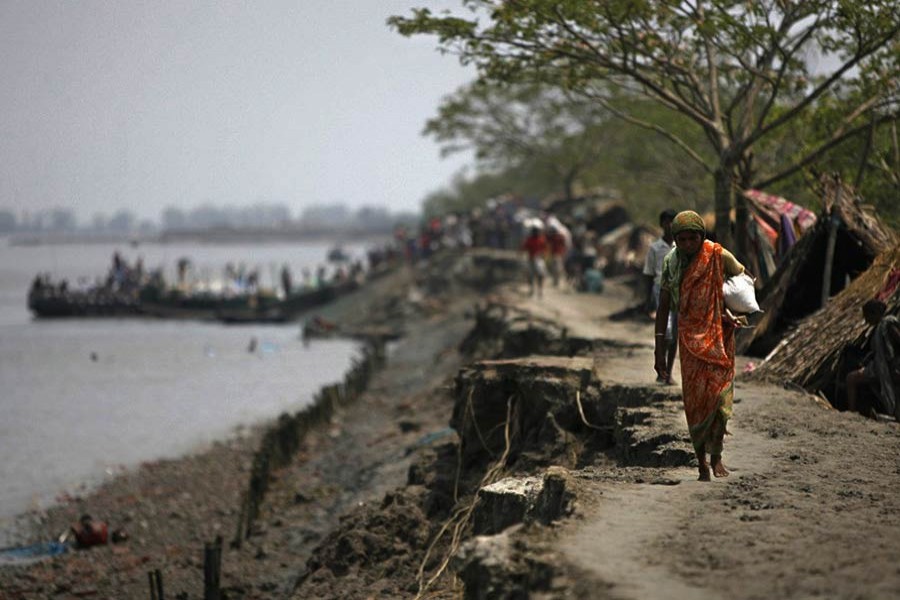
Published :
Updated :

Around 10 million climate migrants will move from coastal areas to big cities of the country in next two decades due to climate change impacts, climate experts warned on Thursday.
"As many as 10 million people will migrate from coastal areas to cities in next 20 years," said Dr Saleemul Huq, director of International Centre for Climate Change and Development (ICCCAD).
"Now there is climate migration, especially in coastal areas and it will continue to increase. We have to start devising plan on climate migration," he added.
Most of climate migrants now come to Dhaka, the capital city of the country, but Dhaka is not capable of absorbing 10 million more people, Dr Huq said.
"So, the government has to come up with a plan so that these migrants can move to other cities."
He also said the government plan also should include adaptation programme for climate victims so that they can survive in coastal areas.
He made the observations while speaking at a dialogue titled 'National Budget 2019-20: Bangladesh on the Pathway to Achieve Climate Resilience' at the National Press Club.
ActionAid Bangladesh (AAB) and International Centre for Climate Change and Development (ICCCAD) organised the event.
Speaking as a panellist, Mr Huq said the government needs to build climate-resilient migrant-friendly cities and towns so that climate migrants can be accommodated there in the future.
Some 22 such cities have already been identified across the country and these towns will accommodate 50,000 people each.
The climate expert said lawmakers, civil society members, researchers and general people can play their role in monitoring climate change implementation fund.
The capacity building is a key factor for mitigating climate change impacts in the long run, he added.
In her speech, Country Director of ActionAid Bangladesh Farah Kabir stressed the importance of coordination among different implementing agencies of climate change programmes.
She also suggested taking budgetary measures to monitor the activities of private sectors and entrepreneurs.
"We need development, energy, and power but we have to make it sure if those are climate smart," she said.
Bangladesh is located in the delta, she said, and blamed an insufficient budgetary allocation for mitigating climate change impacts and disaster management.
In their budget proposals, they sought 5 per cent increase every year till 2030 in climate proofing development investment to achieve all targets of sustainable development goals (SDGs).
They proposed adopting policies and programmes on renewable energy and facilitation of green jobs through an increased investment in building capacity of community, particularly women, young people and children.
The suggestions also included establishment of a joint monitoring mechanism force by the government and civil society organisations for climate change related projects to support implementation, monitoring and evaluation division in assessing the performance of climate allocation.
Welcoming the revision of Bangladesh Climate Change Strategy and Action Plan, they requested that the cost of new plan be estimated as this will be critical to facilitate an assessment of climate financing needs for Bangladesh and could inform future spending targets for the climate budget.
Head of Emergency Preparedness and Response Programme of BRAC Shashanka Saadi and Coordinator, Network on Climate Change Bangladesh Mizanur Rahman Bijoy also spoke at the programme.


 For all latest news, follow The Financial Express Google News channel.
For all latest news, follow The Financial Express Google News channel.